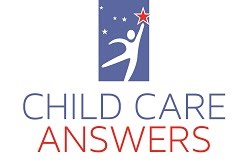Are you struggling with creating contracts and policies? Well one of our Early Child Care Mentors, Jennifer, recently shared the information she received at the IAEYC conference in Tom Copeland's session with the other mentors and I thought it would be valuable to post to our Blog community as well. Enjoy!
Tom Copeland’s Tips for Family Child Care Home Providers
About Contracts and Policies
• Give receipts for payments. If a parent is about to leave without paying, hand them a receipt that you made out ahead of time and remind them to write you a check so they can take their receipt.
• When it is tuition collection day, put a sign on the door or a shoe box on the mantle that says “Pay Day” as a reminder to parents.
• Make a list on the board of names and erase them as the parent pays.
• Put notes in cubbies (folded over for confidentiality) reminding parents to pay
• Your voice may give away an attitude of weakness or vulnerability so put all reminders and policy changes in writing.
• Require parents to pay at least 1 week in advance of services.
• Have parents pay for their last 2 weeks of care upon enrollment. This amount can be non-refundable if you choose. When that parent gives you notice, you have the option to give them the last 2 weeks of care for free or you can terminate the family immediately, if the situation is ugly. Also, a 2 week notice is not a requirement.
• If a family is behind in payments set up a payment plan to take care of the balance. If they can’t even make payments of an extra $5 a week, terminate the family or just learn to be happy with the situation.
• Policy issues are not enforceable by law, but contracts are enforceable by law. Policies are the day to day rules regarding changes of clothes, labeling items, etc. Contracts are the nuts and bolts of your business agreement with your client. Make sure your contracts include signatures of parents and providers, terms (including times and dollar amounts for hours of care provided), and termination procedures. Have both parents sign the contract. If one parent becomes incarcerated or abandons parental duties, write up a new contract with the signature of the remaining parent or guardian.
• Add a line to your policy handbook for parents to sign stating that they will abide by your policies.
• For parents receiving CCDF dollars, figure the total fee for child care services and include that amount on their contract. If the CCDF voucher does not cover the cost of care for whatever reason, the parent can still be held liable for the entire amount.
• Consequences for non-payment should include monetary penalties or termination.
• As a provider/director/teacher you are not responsible for inspecting the proper installation of a car seat. Upon enrollment write down the parent’s drivers license number and license plate number. If you ever feel that a child is unsafe in their parent’s vehicle, call 911 and place a report.
• In order to hold a space in your child care, parents should pay a flat fee (not a deposit because they won’t get it back). Do not promise an opening to a family that hasn’t given you the money to hold the spot.
• For parents who repeatedly pick their children up late, charge a higher evening rate rather than a late fee. If parents are willing to pay the higher rate and still pick up late, continue to raise the rate to compensate for the extra time.








